#MeToo, Now What? - Season 1
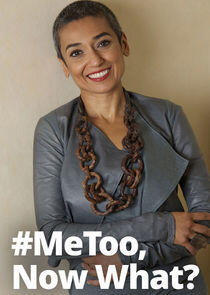
Season 1

Episodes
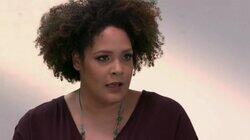
The Reckoning
The reckoning has begun. Women have broken their silence and the world is finally listening. The powerful have fallen - more than 100 high-powered men stand accused. To have this moment be a transformative movement in American history, we start our conversation by examining the pain behind the anger, why it took so long for women to speak out, and the price women paid when they "Leaned In" and spoke up.
Host Zainab Salbi and guests Angela Rye, CNN commentator and NPR political analyst; Ijeoma Oluo, editor-at-large for The Establishment; and Nadine Strossen, the first woman to ever lead the ACLU, discuss the topics people are afraid to address publicly, such as the commodification of women and sex, how we ignored the voices of women of color, the "provocative dress" recrimination, whether this is a moment of nuance or zero tolerance, and even the impact of #MeToo on our dating lives. If abuse of power led to abuse of women, how can women use their power to create change?
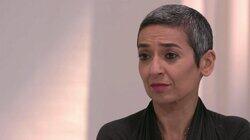
An Accuser and the Accused
Episode 2 features an exclusive interview with Caroline, who many years ago was groped by influential film critic Devin Faraci. We explore how each experienced the assault and came to grips with it afterwards.
After years of pain, Caroline spoke up, and Devin lost his job after a social media uproar about his behavior. Today, they speak with vulnerability and authenticity detailing their separate journeys confronting the assault and its consequences.
In speaking our truth and attempting reconciliation, can we start down the path of healing? Though each person has her or his own personal journey, Episode 2 explores the story of two people searching for healing in their own lives.
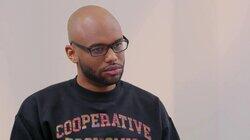
Masculinity in Crisis?
President Trump is not the only man who says the #MeToo movement has gone too far. Progressive and conservative men have come out in the last month saying it has gone too far. Some call it a "witch hunt," some say this is becoming "McCarthyism," and some are dismissing it entirely. But is this men defending the status quo and attempting to silence women again?
In this show, we talk to men who have a different take on the #MeToo movement. They are calling for men to step up in this moment to reflect on their behavior, on the meaning of masculinity and manhood, and to reexamine the messaging men received growing up that needs to change. It is a conversation with men about men as they analyze, assess and discuss various behaviors of men and how men need to engage and speak out in the #MeToo movement. Dr. Michael Kimmel is a sociologist and an expert on masculinity. Mychal Denzel Smith is the author of "Invisible Man, Got the Whole World Watching" and a columnist for The Nation magazine. And John Fugelsang is an actor, broadcaster and comedian.
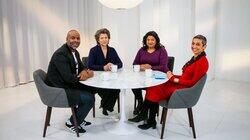
The Culture of Complicity
In this episode we examine how mainstream cultural norms in music, advertisement, publications, gaming, and pornography have created an overtly sexualized and objectified image of women that has impacted social norms and the behavior of men and women. Discussions amongst guests explore the line between freedom of expression and the objectification of women, the money that was invested in the objectification of women, and how individual behavior tolerated such objectification for business reasons or because it became the norm.
If we are to examine the root cause of sexual harassments, we need to examine the culture of complicity and the price we have to pay if we want to create real change in the treatment of women. Madonna Badger is the chief creative officer at Badger and Winters advertising agency and founder of the #WomenNotObjects campaign. Byron Hurt is a documentary filmmaker and activist. Samhita Mukhopadhyay is the newly named executive editor of Teen Vogue and the co-editor of "Nasty Women: Feminism, Resistance and Revolution in Trump's America."
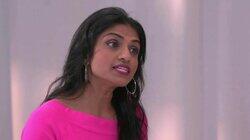
Is Patriarchy on Its Way Out?
To ensure the #MeToo movement leads to transformative change, we need to look at the structures that created this moment of women's rage. Our panel this week exposes hidden cultural biases as they relate to patriarchy, equal pay, corporate culture, leadership, legal reforms, individual behavior and how they all intersect with race, class and gender.
Our guests are Saru Jayaraman, co-founder and president of ROC United; Joanne Lipman, former editor-in-chief of USA Today; and Tony Porter, CEO of Call to Action.
Recently Updated Shows

Rick and Morty
Rick is a mentally gifted, but sociopathic and alcoholic scientist and a grandfather to Morty; an awkward, impressionable, and somewhat spineless teenage boy. Rick moves into the family home of Morty, where he immediately becomes a bad influence.
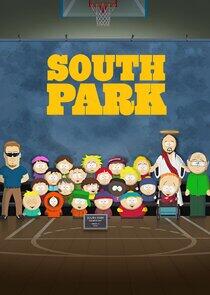
South Park
South Park is an adult comedy animation show centred around 4 children in the small town of south park. Its humour is often dark involving satirical elements and mocking current real-life events.
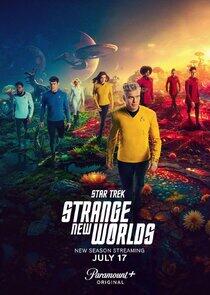
Star Trek: Strange New Worlds
Star Trek: Strange New Worlds follows Captain Pike, Science Officer Spock and Number One in the decade before Captain Kirk boarded the U.S.S. Enterprise, as they explore new worlds around the galaxy.
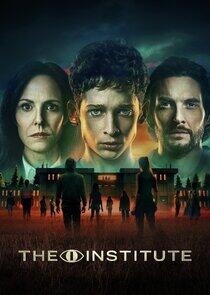
The Institute
When 12-year-old genius Luke Ellis is kidnapped, he awakens at The Institute, a facility full of children who all got there the same way he did, and who are all possessed of unusual abilities. In a nearby town, haunted former police officer Tim Jamieson has come looking to start a new life, but the peace and quiet won't last, as his story and Luke's are destined to collide.

Twisted Metal
Twisted Metal is about a motor-mouthed outsider offered a chance at a better life, but only if he can successfully deliver a mysterious package across a post-apocalyptic wasteland. With the help of a trigger-happy car thief, he faces savage marauders driving vehicles of destruction and other dangers of the open road, including a deranged clown who drives an all too familiar ice cream truck.